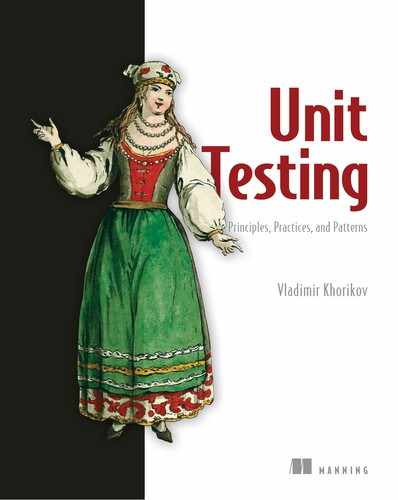Preface
I remember my first project where I tried out unit testing. It went relatively well; but after it was finished, I looked at the tests and thought that a lot of them were a pure waste of time. Most of my unit tests spent a great deal of time setting up expectations and wiring up a complicated web of dependencies—all that, just to check that the three lines of code in my controller were correct. I couldn’t pinpoint what exactly was wrong with the tests, but my sense of proportion sent me unambiguous signals that something was off.
Luckily, I didn’t abandon unit testing and continued applying it in subsequent projects. However, disagreement with common (at that time) unit testing practices has been growing in me ever since. Throughout the years, I’ve written a lot about unit testing. In those writings, I finally managed to crystallize what exactly was wrong with my first tests and generalized this knowledge to broader areas of unit testing. This book is a culmination of all my research, trial, and error during that period—compiled, refined, and distilled.
I come from a mathematical background and strongly believe that guidelines in programming, like theorems in math, should be derived from first principles. I’ve tried to structure this book in a similar way: start with a blank slate by not jumping to conclusions or throwing around unsubstantiated claims, and gradually build my case from the ground up. Interestingly enough, once you establish such first principles, guidelines and best practices often flow naturally as mere implications.
I believe that unit testing is becoming a de facto requirement for software projects, and this book will give you everything you need to create valuable, highly maintainable tests.
